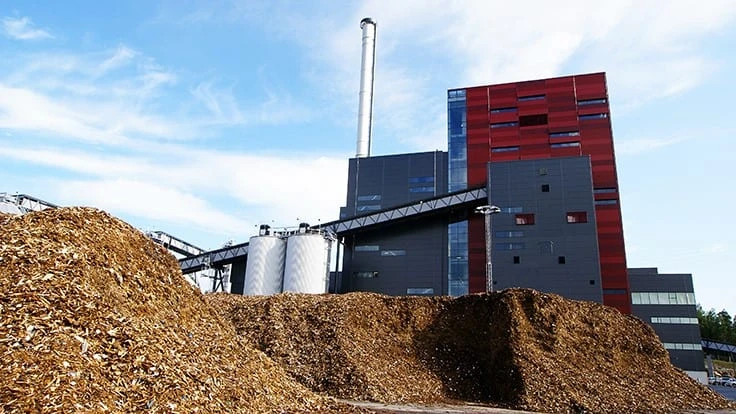
Proposed legislation in Massachusetts could permanently eliminate state clean energy subsidies for biomass within the state, reports the Worchester Business Journal.
Sens. Eric Lesser and Adam Gomez, and Rep. Orlando Ramos, each of whom represent parts of the western Massachusetts city known as the “asthma capital” of the U.S., were joined by Boston Rep. Jay Livingstone in calling for the Joint Committee on Telecommunications, Utilities and Energy (TUE) to issue favorable reports on bills (H 3333/S 2197) that would remove state incentives for facilities that burn wood products to generate power.
"The purpose of these two bills, and they are identical, is to remove woody biomass as an eligible fuel source in Massachusetts' renewable energy portfolio standard, RPS, and the alternative energy portfolio standard, the APS standard," said Lesser. "I want to be clear ... H 3333 and S 2197 do not outright ban biomass. What they do is they eliminate the subsidy for biomass, and I feel strongly that Massachusetts ratepayers should not be subsidizing what is an inherently dirty fuel."
The RPS governs the increasing amount of clean energy that utilities and municipal light plants must purchase each year. State law requires the Department of Energy Resources to make biomass facilities eligible for the RPS program and rules that have been in place since 2012 make only efficient combined-heat-and-power biomass plants eligible to sell renewable energy credits into the RPS market.
This spring, Gov. Charlie Baker’s administration made changes to the state's Renewable Portfolio Standard regulations to require that all new biomass plants meet an overall 60 percent efficiency requirement. The revised regulations prohibit biomass plants from qualifying for the RPS program if they are located within five miles of an environmental justice community, reports the Worchester Business Journal.
Under the environmental justice policy in the new regulations, future biomass facilities could be located and be eligible for incentives in just 10 to 11 percent of the state—a stretch of communities west of the Connecticut River and along the Connecticut border, a strip of coastline that runs through Cohasset, Scituate and Marshfield, and small shreds of various other towns.
Sen. Michael Barrett, the co-chair of the TUE Committee, said the bills Livingstone and the Springfield lawmakers supported seemed like it "simply makes formal what the Baker people already conceded informally, which is that there is not to be any additional biomass built in Massachusetts."
Latest from Construction & Demolition Recycling
- Trump copper tariff includes potential scrap export restrictions
- CDE publishes sustainability report
- AED opposes 'right to repair' language in federal bill
- UP reaches agreement to acquire Norfolk Southern
- Eco Material Technologies opens cement alternatives plant
- Nucor still chasing 2024 profit levels
- Deadline extended: ‘C&DR’ seeks industry participation for 2025 Largest C&D Recyclers List
- Algoma Steel seeks government funding





